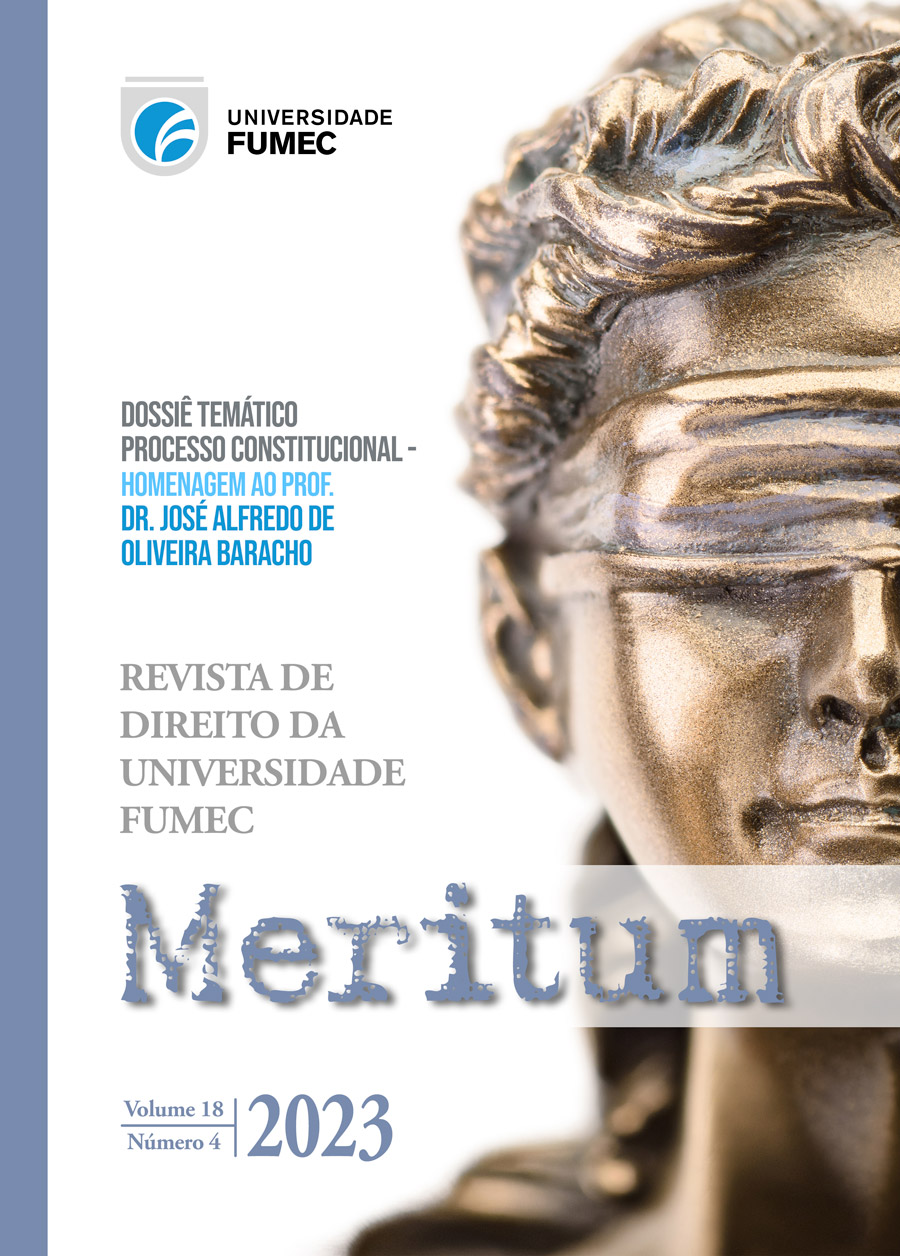THE PRINCIPLE OF THE INSTRUMENTALITY OF THE FORMS AND THE EFFECTIVENESS OF THE JURISDICTIONAL PROTECTION
DOI:
https://doi.org/10.46560/meritum.v18i4.9001Abstract
This article aims to investigate the interstices and establish a critique of the instrumentality of forms and the instrumentalist theory of process, through the symbolic constitutionalization. The nature of the work is qualitative, and it was carried out using the bibliographical review method, in which one can initially establish two main works, namely: “Symbolic Constitutionalization” authored by Marcelo Neves and "The Instrumentality of the Process" by Cândido Dinamarco. Initially, a genealogy of some procedural concepts that are unavoidable for our argumentation is made, such as, for example, the solemnity of procedural acts and the nullity of procedural acts, as well as an exemplification of the instrumentalist theory of process and its own characteristics. Once this first argumentative vestibule is overcome, the next step is the demonstration of the incompatibility of the instrumentality of forms, as well as the instrumentalist theory of process, with the theory of symbolic constitutionalization. From this contrast, we conclude that the instrumentalist theory of the process goes against the alleged normativity of the 1988 Constitution of the Federative Republic of Brazil, depriving it of its most forceful effects in a Democratic State of Law.
Downloads
Published
Issue
Section
License
Autores que publicam nesta revista concordam com os seguintes termos:
- Autores mantém os direitos autorais e concedem à revista o direito de primeira publicação, com o trabalho simultaneamente licenciado sob a Licença Creative Commons Attribution que permite o compartilhamento do trabalho com reconhecimento da autoria e publicação inicial nesta revista;
- Autores têm autorização para assumir contratos adicionais separadamente, para distribuição não-exclusiva da versão do trabalho publicada nesta revista (ex.: publicar em repositório institucional ou como capítulo de livro), com reconhecimento de autoria e publicação inicial nesta revista;
- Autores têm permissão e são estimulados a publicar e distribuir seu trabalho online (ex.: em repositórios institucionais ou na sua página pessoal) a qualquer ponto antes ou durante o processo editorial, já que isso pode gerar alterações produtivas, bem como aumentar o impacto e a citação do trabalho publicado (Veja O Efeito do Acesso Livre).






